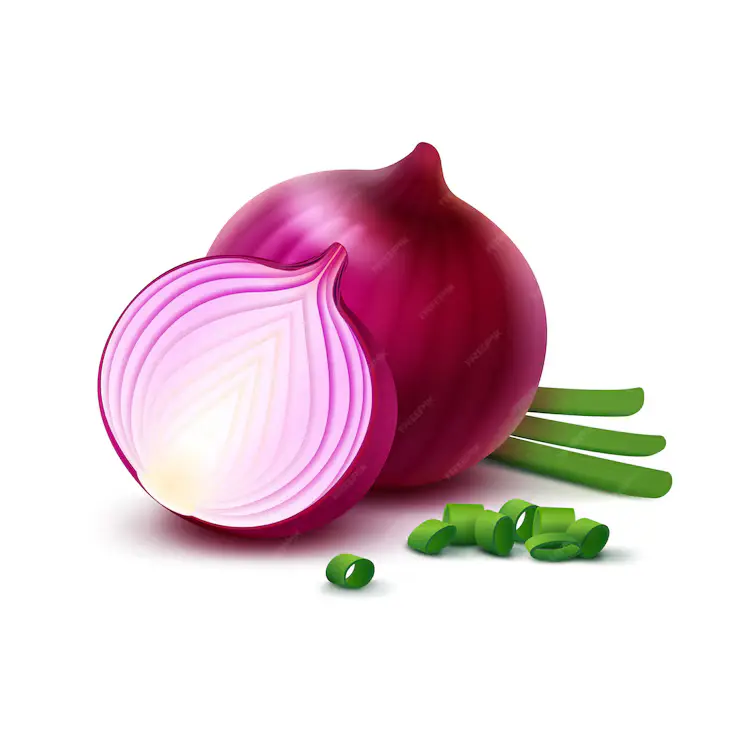Can a Dog Eat Onions? A Comprehensive Guide
As dog owners, we often enjoy sharing food with our pets. However, not all human food is safe for dogs. a simple question that come in our mind can a dog eat onions? The short answer is no. Let’s explore why this particular food is harmful to dogs and what steps to take if your pet accidentally consumes it.

Why Are Onions Dangerous to Dogs?
contain a toxic compound known as N-propyl disulfide, which causes oxidative damage to red blood cells in dogs. This damage leads to hemolytic anemia, a condition where the body’s ability to carry oxygen is impaired. Red blood cells are vital for oxygen circulation, and if they are destroyed in large numbers, your dog could experience serious health issues.
Even small amounts, whether raw, cooked, or powdered, can be harmful to dogs. This includes all parts of the vegetable, from the bulb to the juice, and even processed products like onion powder. Closely related foods like garlic, leeks, and chives, part of the Allium family, pose similar risks.
How Much Onion is Toxic for Dogs?
Toxicity largely depends on the dog’s size and the amount ingested. For example, if a dog consumes more than 0.5% of its body weight in this vegetable, the risk increases significantly. For a 20-pound (9 kg) dog, just 0.1 pounds (45 grams) could be toxic.
Because the danger varies by size and other factors, it’s always better to avoid feeding your dog any dishes containing this ingredient.
Signs of Onion Poisoning
Recognizing the symptoms of poisoning is critical for early intervention. Common signs include:
- Weakness or lethargy
- Pale gums
- Vomiting or diarrhea
- Lack of appetite
- Rapid breathing or panting
- Increased heart rate
If your dog shows any of these symptoms after consuming foods containing onion, contact a veterinarian immediately.
What to Do if Your Dog Eats Onions
If your dog accidentally consumes a dish with onion, it’s important to assess how much was eaten. Even if your dog doesn’t show symptoms right away, it’s still wise to consult your vet, as symptoms may develop over time.
In cases of significant ingestion, your vet may induce vomiting or use activated charcoal to prevent further absorption of toxins. Severe cases could require treatments like intravenous fluids, oxygen therapy, or even a blood transfusion to address the loss of red blood cells.
Preventing Onion Poisoning
The best way to avoid poisoning is by keeping these vegetables and related foods out of your dog’s reach. This includes raw, cooked, and powdered forms. Always check ingredient labels on processed foods to ensure they don’t contain onion or related ingredients.
Educating your family and anyone who cares for your dog about the dangers of certain foods is also important. Make sure everyone knows which foods are safe and which are not.
Safe Treats to Offer Instead
There are many safe and healthy alternatives for treating your dog. Vegetables like carrots, green beans, and cucumbers are great options that provide nutrition and enjoyment without any risks. Always introduce new foods gradually and in small amounts to prevent any digestive upset.
Foods That May Contain Hidden Onion Ingredients
It’s not just raw or cooked onion that poses a risk to dogs. Many processed and prepared foods contain hidden forms of it, often in powder form. Here are a few common examples:
- Soups and stews: These often use onion as a flavor base.
- Seasoned meats: Some pre-prepared meats may be seasoned with it.
- Sauces and gravies: These frequently contain onion powder.
- Baby food: Surprisingly, some baby foods use onion powder for added flavor.
Always double-check labels and ingredients before feeding anything to your dog.
Conclusion: Keep Onions Away from Your Dog
Though it can be tempting to share your meals with your dog, some foods are simply too dangerous. Onions are among those foods that should never be part of your dog’s diet due to their toxicity. Even small amounts can cause harm.
By being cautious and informed, you can prevent accidental ingestion and keep your dog safe. If you ever suspect that your dog has consumed onion, seek veterinary help immediately. Ensuring a healthy diet for your dog means being aware of which human foods are off-limits and providing safe alternatives.
In short, dogs should never eat onions in any form, and immediate care is required if they do. Stick to healthier treats, and your dog will thank you for it! Can a Dog eat Garlic?
